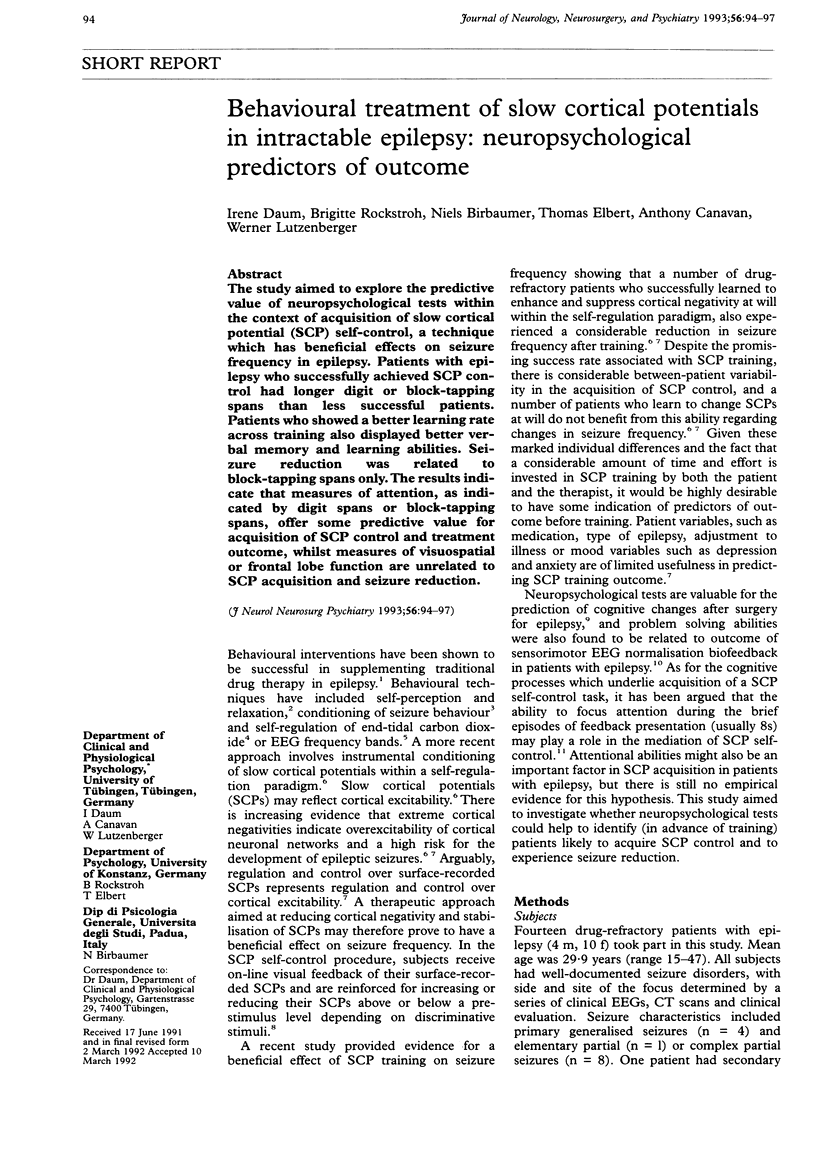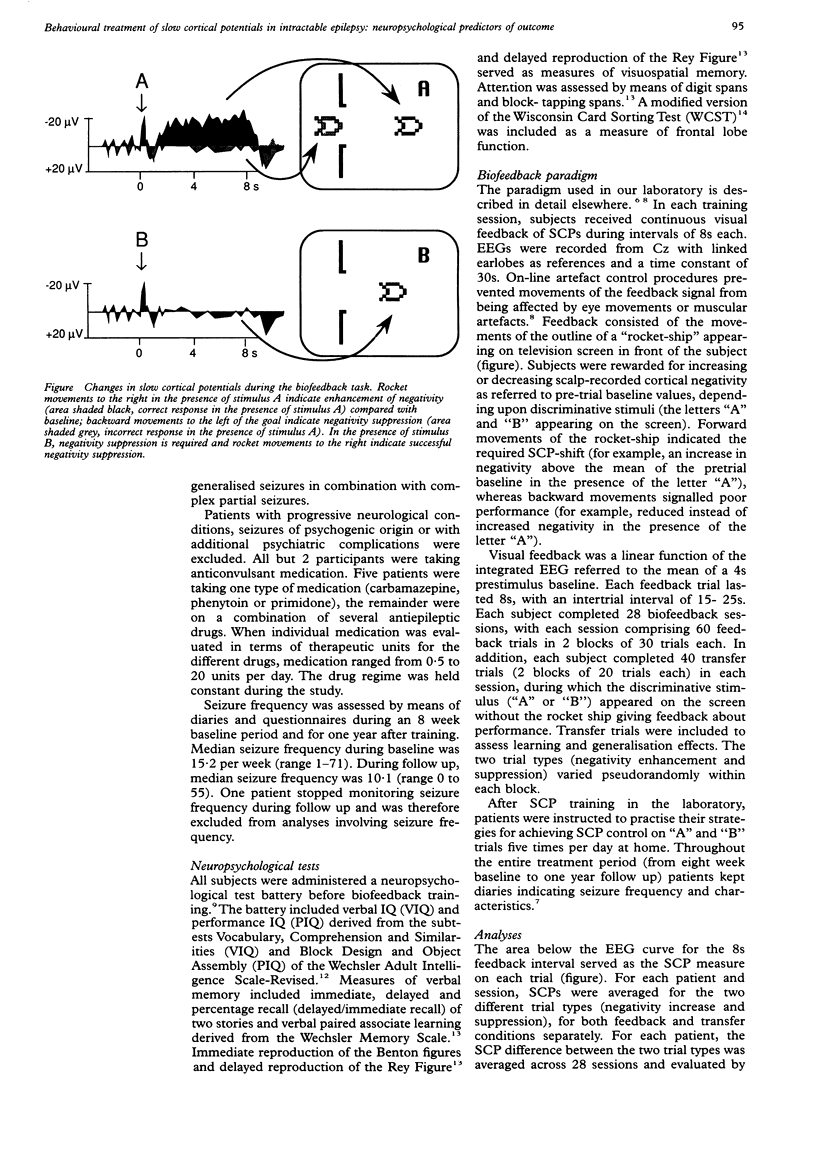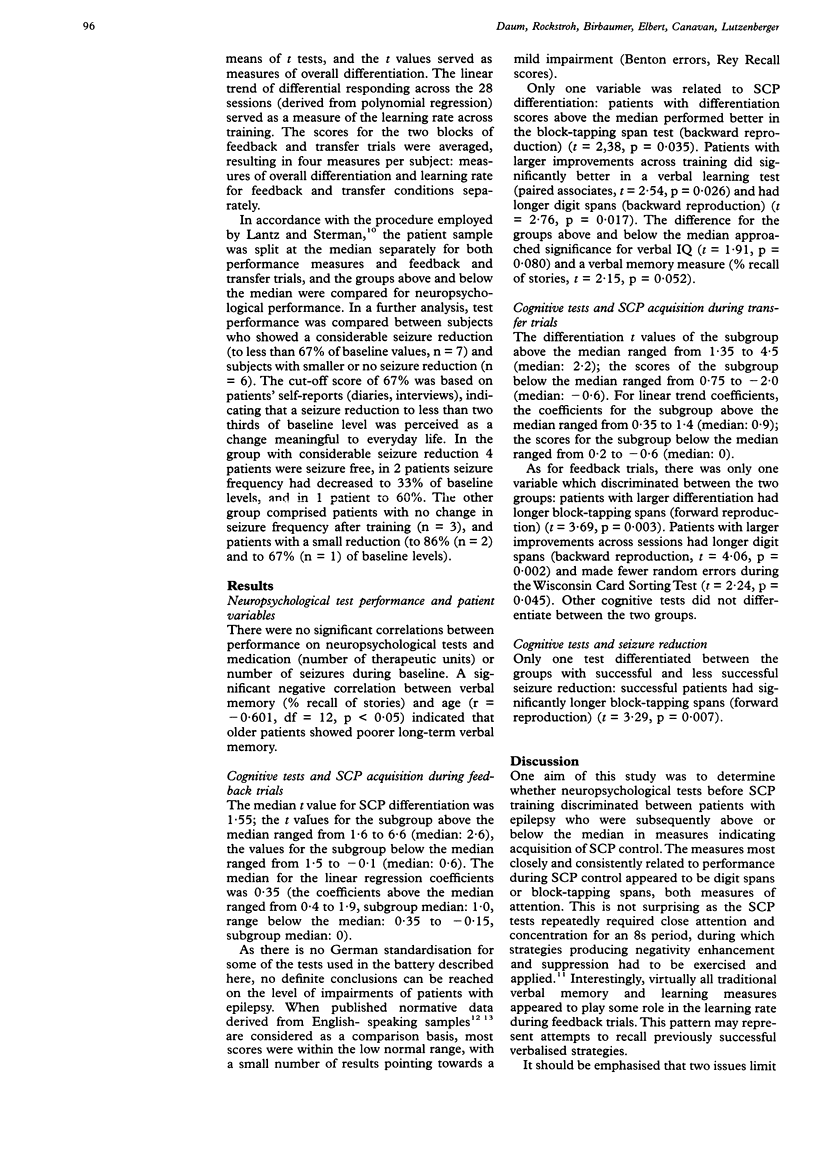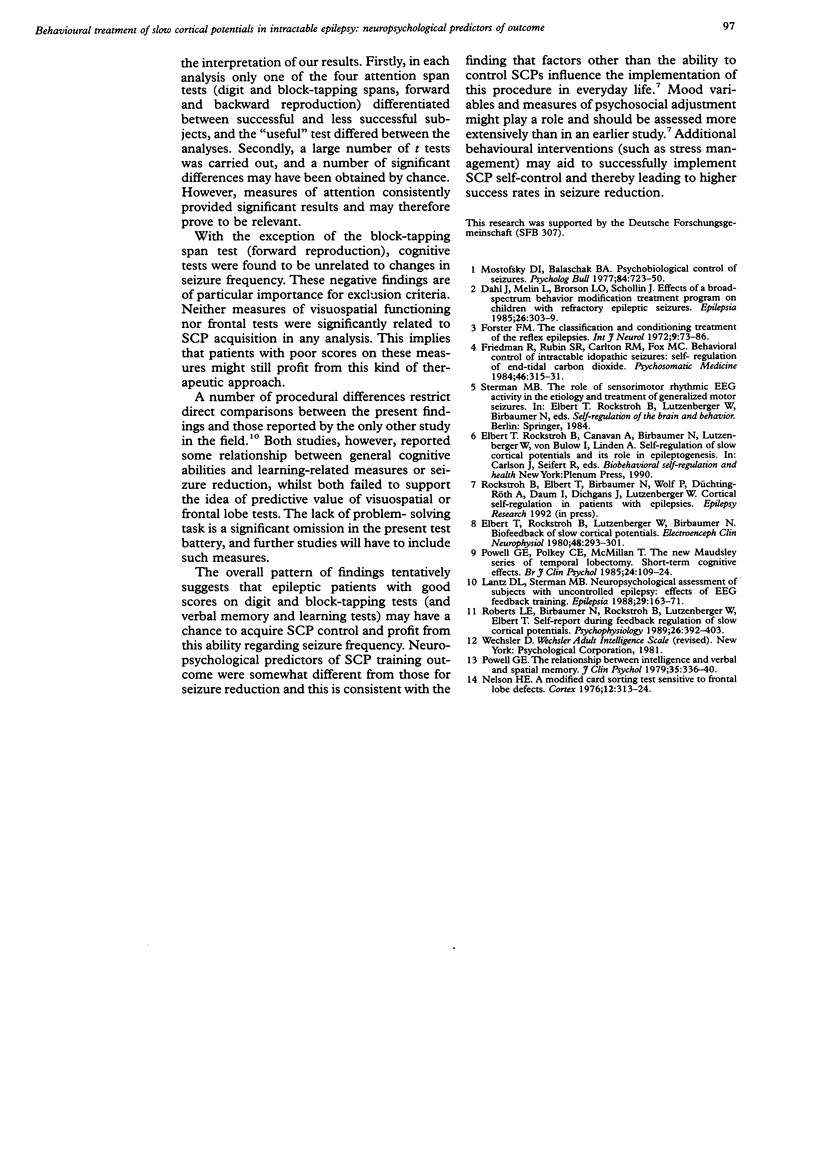Abstract
The study aimed to explore the predictive value of neuropsychological tests within the context of acquisition of slow cortical potential (SCP) self-control, a technique which has beneficial effects on seizure frequency in epilepsy. Patients with epilepsy who successfully achieved SCP control had longer digit or block-tapping spans than less successful patients. Patients who showed a better learning rate across training also displayed better verbal memory and learning abilities. Seizure reduction was related to block-tapping spans only. The results indicate that measures of attention, as indicated by digit spans or block-tapping spans, offer some predictive value for acquisition of SCP control and treatment outcome, whilst measures of visuospatial or frontal lobe function are unrelated to SCP acquisition and seizure reduction.
Full text
PDF



Selected References
These references are in PubMed. This may not be the complete list of references from this article.
- Dahl J., Melin L., Brorson L. O., Schollin J. Effects of a broad-spectrum behavior modification treatment program on children with refractory epileptic seizures. Epilepsia. 1985 Jul-Aug;26(4):303–309. doi: 10.1111/j.1528-1157.1985.tb05654.x. [DOI] [PubMed] [Google Scholar]
- Elbert T., Rockstroh B., Lutzenberger W., Birbaumer N. Biofeedback of slow cortical potentials. I. Electroencephalogr Clin Neurophysiol. 1980 Mar;48(3):293–301. doi: 10.1016/0013-4694(80)90265-5. [DOI] [PubMed] [Google Scholar]
- Forster F. M. The classification and conditioning treatment of the reflex epilepsies. Int J Neurol. 1972;9(1):73–86. [PubMed] [Google Scholar]
- Fried R., Rubin S. R., Carlton R. M., Fox M. C. Behavioral control of intractable idiopathic seizures: I. Self-regulation of end-tidal carbon dioxide. Psychosom Med. 1984 Jul-Aug;46(4):315–331. doi: 10.1097/00006842-198407000-00002. [DOI] [PubMed] [Google Scholar]
- Lantz D. L., Sterman M. B. Neuropsychological assessment of subjects with uncontrolled epilepsy: effects of EEG feedback training. Epilepsia. 1988 Mar-Apr;29(2):163–171. doi: 10.1111/j.1528-1157.1988.tb04414.x. [DOI] [PubMed] [Google Scholar]
- Mostofsky D. I., Balaschak B. A. Psychobiological control of seizures. Psychol Bull. 1977 Jul;84(4):723–750. [PubMed] [Google Scholar]
- Nelson H. E. A modified card sorting test sensitive to frontal lobe defects. Cortex. 1976 Dec;12(4):313–324. doi: 10.1016/s0010-9452(76)80035-4. [DOI] [PubMed] [Google Scholar]
- Powell G. E., Polkey C. E., McMillan T. The new Maudsley series of temporal lobectomy. I: Short-term cognitive effects. Br J Clin Psychol. 1985 May;24(Pt 2):109–124. doi: 10.1111/j.2044-8260.1985.tb01321.x. [DOI] [PubMed] [Google Scholar]
- Roberts L. E., Birbaumer N., Rockstroh B., Lutzenberger W., Elbert T. Self-report during feedback regulation of slow cortical potentials. Psychophysiology. 1989 Jul;26(4):392–403. doi: 10.1111/j.1469-8986.1989.tb01941.x. [DOI] [PubMed] [Google Scholar]


